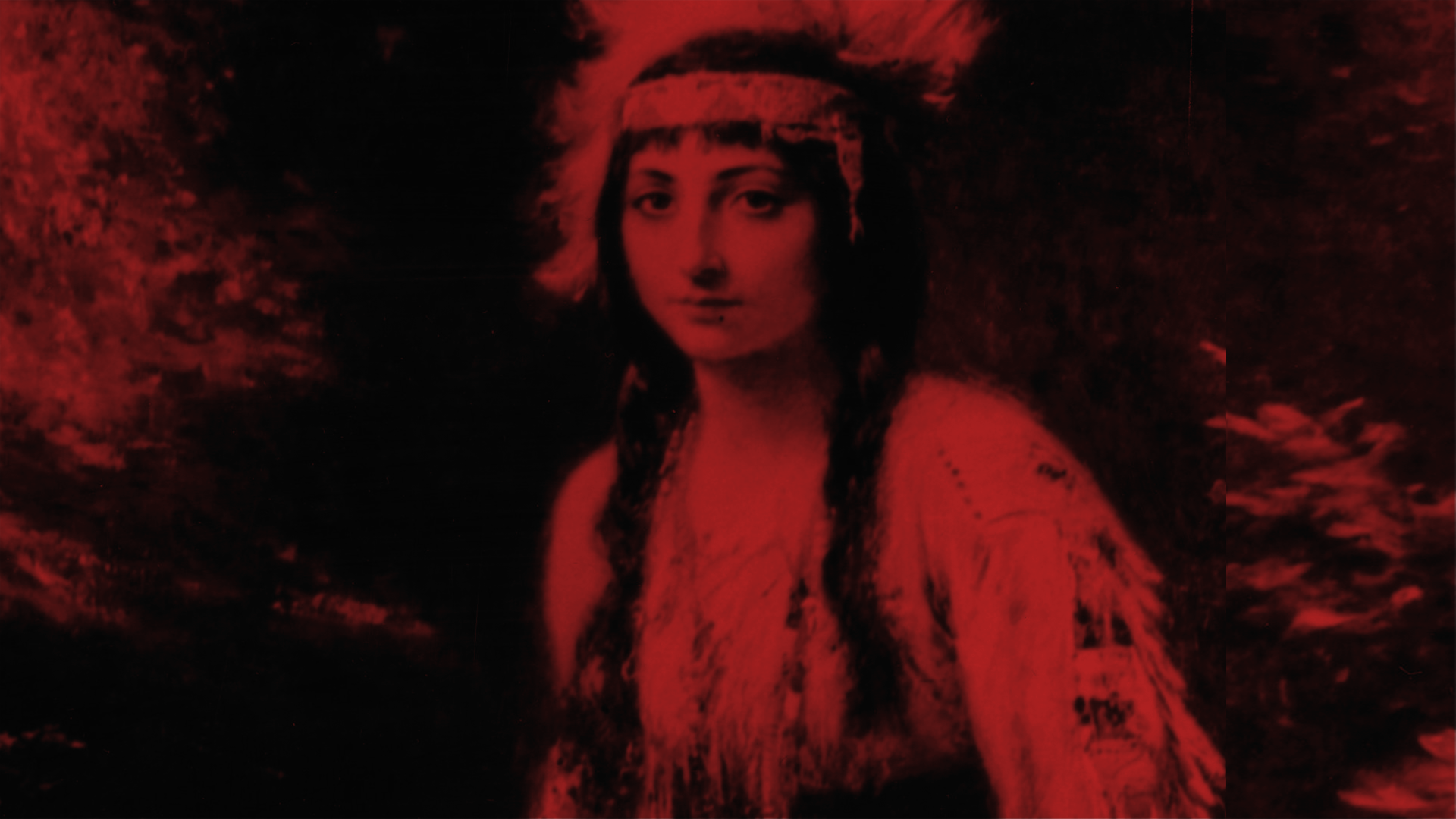
Play this alternative audio over a common movie about Pocahontas to learn the real story.
“The true story of Pocahontas is a tale of tragedy and heartbreak.”
— Vincent Schilling, Indian Country Today
What if we told you one of the most common depictions of the most famous Indigenous woman is based on lies?
You may ask how such a depiction could make that much of an impact?
The false narratives about Pocahontas were established hundreds of years ago by John Smith himself and the falsehood has been embellished and perpetuated ever since, especially in film. Over 10 films have been made about Pocahontas and all have participated in furthering the harmful “Indian Princess” stereotype. This depiction continues to shape a false narrative about Indigenous Women being more sexually available and “less worthy” than their non-Indigenous counterparts.
This has direct impact in the real world including the fact that Indigenous Women are 12 times more likely to be murdered or go missing than any other demographic group, and the fact that four out of five Indigenous Women will experience violence in their lifetime.
It’s time to hear the true story of Pocahontas.
In this alternative audio track, Pocahontas - or to use her real name, Matoaka - is the narrator and setting the historical record straight. Her story that was originally told as a romantic adventure, is in reality the story of one of the first documented Missing & Murdered Indigenous Women - the first of many sisters.
This adaptation aims to answer one of the many calls for justice made in the National Inquiry into Missing and Murdered Indigenous Women and Girls’ Final Report.
Call for Justice 6.1 tasks us to “Take proactive steps to break down the stereotypes that hypersexualize and demean Indigenous women, girls, and 2SLGBTQQIA people, and to end practices that perpetuate myths that Indigenous women are more sexually available and ‘less worthy’ than non-Indigenous women because of their race or background.”
By retelling Matoaka’s story, from an Indigenous perspective, the narrative shifts to the truth. Stereotypes of hyper-sexualization are broken down and the values that maintain colonial violence are confronted in this new script.
Change cannot wait. The time for justice is now and we all have a part to play.
Further Learning
Follow the links below to learn more about the true story of Pocahontas.
Online article: The True Story of Pocahontas: Historical Myths Versus Sad Reality
Book for purchase: The True Story of Pocahontas: The Other Side of History
Online article about John Smith and claims about his life: History.com - John Smith


